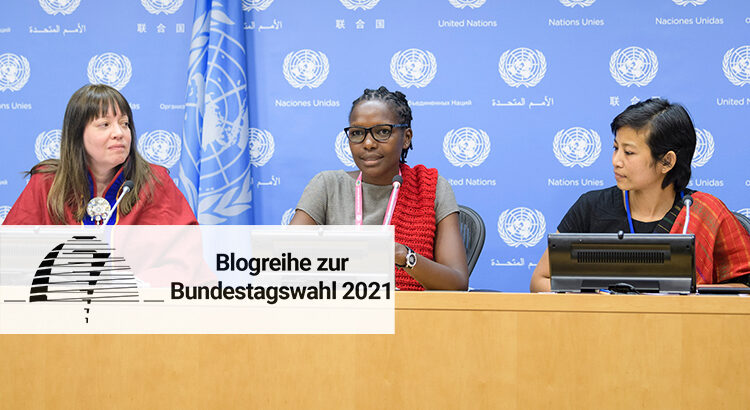Emerging technologies are transforming foreign and security policy as they challenge traditional understandings of power, influence and security. Developments in artificial intelligence (AI) and the increasing importance of cyberspace are some of the most prominent in this regard. Yet, not only are there repercussions for security when narrowly conceived as state security, but they also affect gender relations and human security more broadly. Gender as an analytical category allows us to shed light on the impact of emerging technologies on inequalities, power and violence.
Author: Clara Perras
Clara Perras ist wissenschaftliche Mitarbeiterin in der Forschungsabteilung „Glokale Verflechtungen“ bei PRIF. Ihr Forschungsinteresse gilt feministischen Ansätzen in der Friedens- und Konfliktforschung, insbesondere zu Gender, Frieden und Sicherheit, internationaler Cybersicherheit und feministischer Außenpolitik. // Clara Perras is a researcher at PRIF’s “Glocal Junctions” research department. Her research interest include feminist approaches to peace and conflict studies, especially on Gender, Peace and Security, International Cybersecurity and feminist foreign policy
Eine feministische Außenpolitik für Deutschland?
Seit Schweden im Jahr 2014 offiziell eine feministische Außenpolitik verfolgt, wird der Begriff in der Sicherheits- und Außenpolitik immer präsenter. Fünf weitere Länder haben mittlerweile offiziell eine feministische Außenpolitik oder zumindest feministische Leitlinien der Außen- und Sicherheitspolitik eingeführt: Kanada, Frankreich, Mexiko, Spanien und Luxemburg. Damit stellen diese Staaten die Gleichberechtigung der Geschlechter als zentrales Mittel zur Herstellung von Frieden und Sicherheit in den Fokus ihrer Außenpolitik, setzen sich für eine höhere Anzahl an Frauen im diplomatischen und außenpolitischen Dienst ein und stärken die Durchsetzung der (Frauen-)Menschenrechte.


